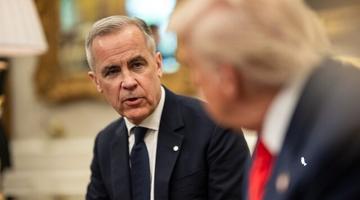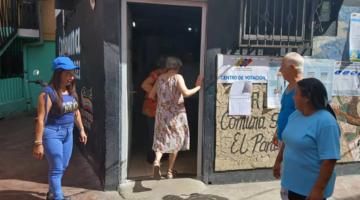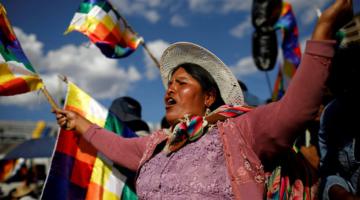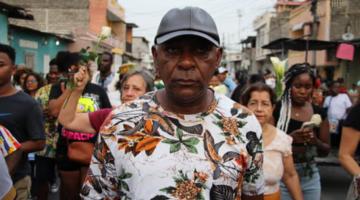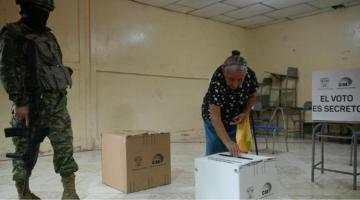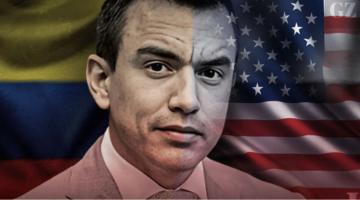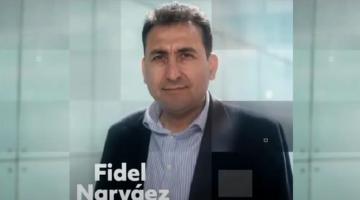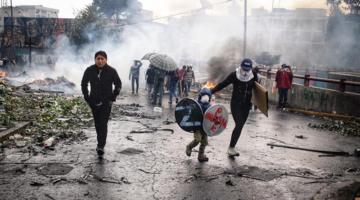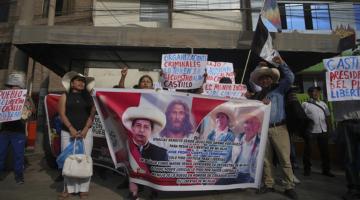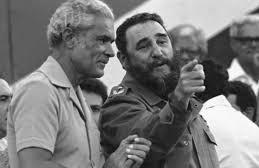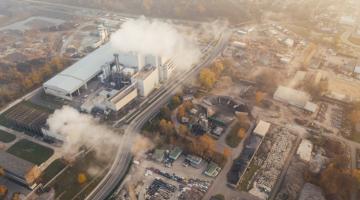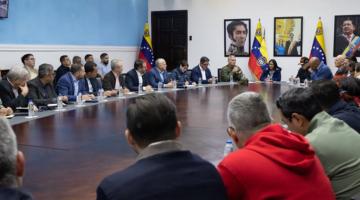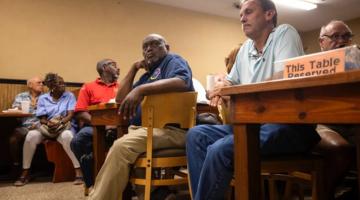Photo by Clau O’Brien Moscoso. March 10, 2025 - thousands in Lauca Ñ, Cochabamba keeping permanent 24/7 guard since the failed assassination attempt of Evo Morales on October 27, 2024.
Missing the enemy, or how Western leftists fail in their analysis yet again. Bolivia is the latest example.
On Sunday August 17, 2025, the first round of presidential elections in the Plurinational State of Bolivia were held in the small Andean nation of 12 million people. Now the country is headed to an October 19 run-off between centrist Christian Democratic Party Senator Rodrigo Paz, the son of a former president, and former right wing President Jorge “Tuto” Quiroga of the Libre Party. The election results on Sunday ended twenty years of MAS-IPSP (Movement Towards Socialism - Political Instrument for the Sovereignty of the People) in power with MAS candidate and current Interior Minister Eduardo del Castillo polling at between 1-2%, effectively completing the objectives of the 2019 coup.
The candidate with the largest popular support, former president Evo Morales, was excluded from Sunday’s elections and his supporters ran a “null vote” campaign in protest, which garnered 20% in the country with mandatory voting, far more than del Castillo and the other “leftist” candidate Andrónico Rodríguez, expelled from the syndicate (neighborhood union) in El Trópico de Cochabamba for launching his presidential campaign against the candidate collectively decided on with the syndicate’s own internal processes, in which they struggled during mass assemblies for months. These are the masses of Bolivia whose voices were excluded from Sunday’s elections.
Morales had been barred from running again after rulings from the Plurinational Constitutional Tribunal (TCP) and Supreme Electoral Tribunal (TSE), and a lawfare campaign with the coordination of the current government, headed by former Economic Minister Luis Arce, against Morales and the largest political movement to ever hold power in the country. MAS’s candidate del Castillo himself has been implicated in the lawfare campaign against Morales, using old accusations from the Añez coup regime, and in the assassination attempt against Morales on October 27, 2024.
The country now faces certain neoliberalization, an opening up for private capital, and a reversal of the gains made in the last two decades. Through the capture of the current Luis Arce administration, especially but not exclusive to the Interior Ministry, a targeted lawfare campaign using the courts stacked with judges serving the interests of those preventing the popular block represented by Morales from taking power again, and an analysis informed by what is occurring in the countries with large lithium deposits (Bolivia, Chile, Argentina, and Puno, Peru), it becomes clear that the objective to destroy the cultural and democratic revolution (initiated by MAS) also included infiltrating and neutralizing MAS and Morales’s return to power.
What Bolivia and the world witnessed on Sunday was a counterinsurgent strategy from the US/EU/NATO Axis of Domination to ensure that the interests of the largely indigenous rural masses of the country would not be served. Lawfare and an eventual coup against Pedro Castillo in Peru in 2022, the capture of Argentina via Javier Milei after a brutal lawfare campaign against Cristina Fernández de Kirchner, and the imperial ambitions of Gabriel Boric in Chile (enthusiastically working with SOUTHCOM), have led to an encirclement of the “Lithium Triangle” and Bolivia in particular. Sunday’s election results only highlight whose interests were served by the rupture of MAS-IPSP. As Elon Musk himself said in the wake of the Bolivia 2019 coup, “We will coup whoever we want! Deal with it!”
“Egos are to blame” and “the masses have been demobilized for two decades” - Missing the enemy, or why Western leftists fail again.
"Anytime you make an analysis of an oppressed people in any aspect of their life and you leave out the oppressor you will never come to a correct analysis. On the contrary, you will blame the oppressed for all of their problems." - Kwame Ture
What some may qualify the crushing defeat of Bolivia’s MAS as “ego wars” or “issues with personalities” - referring to the rift between Arce and Morales - is actually a continuation of the 2019 coup. It calls into question whether the 2020 election of the Arce government was truly a restoration of democracy or a second coup - this time internally, with the political party apparatus formerly aligned with a mass grassroots base turning against its internally selected and approved leadership now run by technocratic officers in La Paz removed from the militancy of MAS. These are the Westernized urban professional and middle class liberal petit bourgeois that either defend the Arce administration or claim the fault is on “both sides” for the destruction of MAS. More absurd still and from the West no less, others claim the popular block of indigenous campesino organizations, labor unions and other social movements that make up MAS’s base are divided or have been intentionally demobilized, while not addressing the enemy of US imperialism. The claim that the masses have been demobilized simply comes off as patronizing racist western chauvinism.
“Go to the people, live with them, learn from them, love them." - Amilcar Cabral
While the MAS political party apparatus lost, the masses of people supporting the twenty year democratic and cultural revolution that led to the creation of a plurinational state, a new constitution with guaranteed rights and improved material conditions of the country’s most vulnerable and forgotten populations who continue to support that project, and as evidenced by the mass marches of millions, strikes and road blockades, the thousands of people that maintain a 24 hour per day security guard in Lauca Ñ after the failed assassination attempt, and in the number of voters who voted “null” to express support for Evo’s candidacy. Western leftists remain either woefully uninformed but very vocal in their “takes”, or intentionally muddying the waters. For what reasons, perhaps some undisclosed conflicts of interest would answer that question.
Men make their own history, but they do not make it as they please; they do not make it under self-selected circumstances, but under circumstances existing already, given and transmitted from the past. - Karl Marx
The first “March to Save Bolivia” took place in September 2024, with 3.4 million people participating. Intense political repression and persecution followed, including the arrest of multiple union leaders and militants. Then came the assassination attempt against Morales on October 27, 2024 after which he has not left Lauca Ñ in the department of Cochabamba. The “Second March to Save Bolivia,” a march called for by Morales and his mass base of supporters, arrived in the capital city of La Paz on Friday May 16, 2025, with 3.6 million participants. Their objective was to register the candidacy of Morales for the first round of presidential elections, held this past Sunday, under a different political party since the MAS party structure had been stolen by the urban and professional petite bourgeois in La Paz. The march was met with tear gas, heavy police repression and at least 50 political prisoners being detained, according to international solidarity activists. A second march took place on May 20. The scenes looked like battles between the popular indigenous movements and the coup government of 2019, which supporters of Morales say uncovers President Luis Arce’s true intentions of using right wing tactics to ensure Morales would not be able to run again.
Lawfare in the Courts
A sustained lawfare campaign has been underway via the TSE (Supreme Electoral Tribunal), TCP (Plurinational Constitutional Tribunal) and President Arce’s government to disqualify the former president using a disputed interpretation of Article 168 of the Plurinational Constitution which states that “the term of office of the President and Vice-President of the State is five years, and can be re-elected once continuously.” On November 13, 2024 the TSE ratified that it would comply with the 1010/2023 sentence of the TCP that considers that the limitation of article 168 of the Constitution also applies to discontinuous applications,” a provision which they say disqualifies Morales.
However, the judges making these rulings themselves have extended their terms with Arce’s support in a move many have questioned. Lawfare Observatory, dedicated to analyzing cases of lawfare in Latin America and the Caribbean, have outlined the various ways lawfare is being deployed in Bolivia, both through attempting to disqualify Morales’ candidacy, and through old cases used during the Añez dictatorship, the most egregious false charge against Morales being rape of minors.
Attacks on those who did not participate in the lawfare campaign only intensified. On May 5, Lilian Moreno, the judge that annulled the arrest warrant against the former president for a case of aggravated human trafficking, was detained and arrested by Bolivian police in Santa Cruz and transferred to La Paz. A new ruling was issued which reactivated the arrest warrant against Morales.
New Political Instrument and Party
The newly reconstituted political instrument for the sovereignty of the people, Evo Pueblo, and the Unity Pact, now leaving behind MAS-IPSP, the party that brought Morales and the indigenous mass base and movements he represents to power, registered Morales’s candidacy under the Partido de Acción Nacional Boliviano (Pan-Bol) and Frente Para la Victoria (FPV) parties. However, the Arce backed electoral board (TSE) blocked both parties from participating in Sunday’s elections.
This action came days after Arce declared he would not be seeking re-election to prevent further fragmentation in the Bolivian left and urged Morales to decline his presidential bid. Morales responded by saying only the people could tell him to decline his candidacy. Instead of Arce, del Castillo ran under the MAS party, among the top figures in the Arce government responsible for the persecution of Morales, who the former president has accused of being tied to narcotrafficking, the CIA, and DEA. MAS and del Castillo’s resounding loss on Sunday should come as no surprise and, perhaps, the point of this candidacy was to lose and ensure a right wing government would come into power – either Rodrigo Paz or former president Jorge “Tuto” Quiroga. Verified leaked chats confirm Arce’s control over electoral bodies to ban Evo from running, meanwhile the MAS candidate, Eduardo del Castillo, could only garner a mere 2%.
Elections without the Masses: Popular Block Excluded from Elections
This Sunday’s elections, in other words, went ahead without the candidacy and campaign backed by the country’s popular block, the indigenous campesinos and workers organized at multiple levels of society – through neighborhood unions, labor unions, student groups and political homes, and other mass organizations. These are the same people that came out multiple times, in the millions, agitating for their rights and to protest the Lenin Moreno-esque Arce government. Some of these people remain political prisoners.
The western influenced discourse (and fallacy) that the popular block of Bolivia is divided, or demobilized – or is following the cult of personality in Morales – once again shows why an analysis without the historical and material context falls short. If we lose sight of the enemy, we’ve already lost.
---------------------------------------------------------------------------------------------------------------------
Victoria contrainsurgente de EE.UU. en Bolivia: Faccionalismo intencional dentro del MAS y la captura del Triángulo del Litio
Perdiendo de vista al enemigo, o por qué la izquierda occidental vuelve a fracasar.
El domingo 17 de agosto de 2025, hubo acabó la primera vuelta de las elecciones presidenciales en el Estado Plurinacional de Bolivia en la pequeña nación andina de 12 millones de personas. Ahora el país se dirige a una segunda vuelta el 19 de octubre entre el senador centrista del Partido Demócrata Cristiano, Rodrigo Paz, hijo de un expresidente, y el expresidente de derecha Jorge "Tuto" Quiroga del Partido Libre. Los resultados electorales del domingo pusieron fin a veinte años del MAS-IPSP (Movimiento Al Socialismo - Instrumento Político por la Soberanía de los Pueblos) en el poder, con el candidato del MAS y actual Ministro de Gobierno, Eduardo del Castillo, obteniendo entre un 1 y un 2% de los votos, cumpliendo efectivamente los objetivos del golpe de Estado de 2019.
El candidato con mayor apoyo popular, el expresidente Evo Morales, fue excluido de las elecciones del domingo y sus partidarios realizaron una campaña de "voto nulo" en protesta, que obtuvo un 20% en el país con voto obligatorio, muy por encima de del Castillo y del otro candidato "izquierdista" Andrónico Rodríguez, expulsado del sindicato en El Trópico de Cochabamba por lanzar su campaña presidencial en contra del candidato decidido colectivamente mediante los procesos internos propios del sindicato, en los que lucharon durante meses en asambleas masivas. Estas son las masas de Bolivia cuyas voces fueron excluidas de las elecciones del domingo.
A Morales se le había impedido postularse nuevamente tras fallos del Tribunal Constitucional Plurinacional (TCP) y del Tribunal Supremo Electoral (TSE), y una campaña de lawfare (guerra jurídica) con la coordinación del gobierno actual, encabezado por el exministro de Economía Luis Arce, en contra de Morales y del movimiento político más grande que haya tenido el poder en el país. El propio candidato del MAS, del Castillo, ha estado implicado en la campaña de lawfare contra Morales, utilizando viejas acusaciones del régimen del golpe de Estado de Añez, y en el intento de asesinato contra Morales el 27 de octubre de 2024.
El país se enfrenta ahora a una segura neoliberalización, una apertura al capital privado y un retroceso de los avances logrados en las últimas dos décadas. A través de la captura de la actual administración de Luis Arce, especialmente pero no exclusivamente del Ministerio de Gobierno, una campaña dirigida de lawfare que utiliza tribunales plagados de jueces que sirven a los intereses de impedir que el bloque popular representado por Morales vuelva al poder, y un análisis informado por lo que ocurre en los países con grandes depósitos de litio (Bolivia, Chile, Argentina y Puno, Perú), queda claro que el objetivo de destruir la revolución cultural y democrática (iniciada por el MAS) también incluía infiltrar y neutralizar al MAS y el retorno al poder de Morales.
Lo que Bolivia y el mundo presenciaron el domingo fue una estrategia contrainsurgente del Eje de Dominación de EE.UU./UE/OTAN para garantizar que los intereses de las masas rurales mayoritariamente indígenas del país no fueran representados. La guerra jurídica (lawfare) y el eventual golpe de Estado contra Pedro Castillo en Perú en 2022, la captura de Argentina a través de Javier Milei y una brutal campaña de lawfare contra Cristina Fernández de Kirchner, y las ambiciones imperiales de Gabriel Boric en Chile (trabajando entusiastamente con el COMANDO SUR), han llevado al cerco del "Triángulo del Litio" y de Bolivia en particular. Los resultados electorales del domingo solo destacan a qué intereses sirvió la ruptura del MAS-IPSP. Como el propio Elon Musk dijo tras el golpe de Estado en Bolivia de 2019: "¡Daremos golpe a quien queramos! ¡Acéptenlo!".
"Los egos son los culpables" y "las masas han estado desmovilizadas durante dos décadas" - Perdiendo de vista al enemigo, o por qué la izquierda occidental vuelve a fracasar.
"Cada vez que haces un análisis de un pueblo oprimido en cualquier aspecto de su vida y omites al opresor, nunca llegarás a un análisis correcto. Por el contrario, culparás a los oprimidos de todos sus problemas." - Kwame Ture
Lo que algunos podrían calificar como la aplastante derrota del MAS de Bolivia, atribuyéndole a "guerras de ego" o "problemas de personalidades" —en referencia a la ruptura entre Arce y Morales— es en realidad una continuación del golpe de Estado de 2019. Esto pone en duda si las elecciones de 2020 que llevaron al gobierno de Arce fueron verdaderamente una restauración de la democracia o un segundo golpe de Estado, esta vez interno, donde el aparato político del partido, anteriormente alineado con una base popular de masas, se volvió contra su liderazgo seleccionado y aprobado internamente, ahora dirigido por técnicos tecnócratas en La Paz alejados de la militancia del MAS. Estos son los profesionales urbanos occidentalizados y la pequeña burguesía liberal de clase media que defienden la administración de Arce o afirman que la culpa de la destrucción del MAS es de "ambos bandos". Más absurdo aún, y desde Occidente nada menos, otros afirman que el bloque popular de organizaciones indígenas campesinas, sindicatos laborales y otros movimientos sociales que conforman la base del MAS está dividido o ha sido intencionalmente desmovilizado, sin abordar al enemigo del imperialismo estadounidense. La afirmación de que las masas han sido desmovilizadas simplemente resulta un chovinismo occidental racista y paternalista.
"Ve al pueblo, vive con ellos, aprende de ellos, ámalos." - Amílcar Cabral
Si bien el aparato del partido político MAS perdió, las masas populares que apoyaron la revolución democrática y cultural de veinte años que condujo a la creación de un estado plurinacional, una nueva constitución con derechos garantizados y la mejora de las condiciones materiales de las poblaciones más vulnerables y olvidadas del país siguen apoyando ese proyecto, como lo demuestran las marchas multitudinarias de millones de personas, las huelgas y los bloqueos de carreteras, las miles de personas que mantienen seguridad 24/7 en Lauca Ñ tras el fallido intento de asesinato, y la cantidad de votantes que votaron "nulo" para expresar su apoyo a la candidatura de Evo. La izquierda occidental sigue estando lamentablemente desinformada, pero muy abierta en sus opiniones, o bien enturbiando las aguas intencionalmente. ¿Por qué razones? Quizás algunos conflictos de interés no revelados responderían a esa pregunta.
"Los hombres hacen su propia historia, pero no la hacen a su libre arbitrio; no la hacen bajo circunstancias elegidas por ellos mismos, sino bajo aquellas circunstancias con que se encuentran directamente, que existen y les han sido legadas por el pasado." - Karl Marx
La primera "Marcha para Salvar a Bolivia" tuvo lugar en septiembre de 2024, con 3.4 millones de participantes. Le siguió una intensa represión y persecución política, incluido el arresto de múltiples líderes y militantes sindicales. Luego vino el intento de asesinato contra Morales el 27 de octubre de 2024, después del cual no ha salido de Lauca Ñ en el departamento de Cochabamba. La "Segunda Marcha para Salvar a Bolivia", una marcha convocada por Morales y su amplia base de seguidores, llegó a la ciudad capital de La Paz el viernes 16 de mayo de 2025, con 3.6 millones de participantes. Su objetivo era inscribir la candidatura de Morales para la primera vuelta de las elecciones presidenciales, celebrada el pasado domingo, bajo un partido político diferente, ya que la estructura del partido MAS había sido robada por la pequeña burguesía urbana y profesional de La Paz. La marcha fue recibida con gases lacrimógenos, una fuerte represión policial y al menos 50 detenidos como presos políticos, según activistas de solidaridad internacional. Una segunda marcha tuvo lugar el 20 de mayo. Las escenas parecían batallas entre los movimientos populares indígenas y el gobierno golpista de 2019, lo que, según los partidarios de Morales, deja al descubierto las verdaderas intenciones del presidente Luis Arce de utilizar tácticas de derecha para asegurarse de que Morales no pudiera postularse nuevamente.
Lawfare en las cortes
Una campaña sostenida de lawfare (guerra jurídica) ha estado en marcha por parte del TSE (Tribunal Supremo Electoral), el TCP (Tribunal Constitucional Plurinacional) y el gobierno del presidente Arce para descalificar al expresidente utilizando una interpretación controvertida del Artículo 168 de la Constitución Plurinacional que establece que "el periodo de mandato de la Presidenta o del Presidente y de la Vicepresidenta o del Vicepresidente del Estado es de cinco años, y pueden ser reelectas o reelectos por una sola vez de manera continua". El 13 de noviembre de 2024, el TSE ratificó que acataría la sentencia 1010/2023 del TCP que considera que "la limitación del artículo 168 de la Constitución también se aplica a postulaciones discontinuas", una disposición que, según ellos, descalifica a Morales.
Sin embargo, los mismos jueces que emiten estos fallos han extendido sus mandatos con el apoyo de Arce en un movimiento que muchos han cuestionado. El Observatorio de Lawfare, dedicado a analizar casos de lawfare en América Latina y el Caribe, ha delineado las diversas formas en que se está desplegando la guerra jurídica en Bolivia, tanto mediante el intento de descalificar la candidatura de Morales, como a través de casos viejos utilizados durante la dictadura de Áñez, siendo el cargo más atroz contra Morales el de violación de menores.
Los ataques contra quienes no participaron en la campaña de lawfare solo se intensificaron. El 5 de mayo, Lilian Moreno, la jueza que anuló la orden de arresto contra el expresidente por un caso de trata y tráfico de personas agravada, fue detenida y arrestada por la policía boliviana en Santa Cruz y trasladada a La Paz. Se emitió un nuevo fallo que reactivó la orden de arresto contra Morales.
Nuevo Instrumento Político y Partido
El recién reconstituido instrumento político para la soberanía de los pueblos, Evo Pueblo, y el Pacto de Unidad, dejando atrás al MAS-IPSP, el partido que llevó al poder a Morales y a la base de masas indígena y los movimientos que representa, inscribió la candidatura de Morales bajo los partidos Partido de Acción Nacional Boliviano (Pan-Bol) y Frente Para la Victoria (FPV). Sin embargo, el tribunal electoral respaldado por Arce (TSE) bloqueó la participación de ambos partidos en las elecciones del domingo.
Esta acción se produjo días después de que Arce declarara que no buscaría la reelección para evitar una mayor fragmentación en la izquierda boliviana e instara a Morales a declinar su postulación presidencial. Morales respondió diciendo que solo el pueblo podía pedirle que decline su candidatura. En lugar de Arce, del Castillo se postuló bajo el partido MAS, siendo una de las figuras principales del gobierno de Arce responsable de la persecución contra Morales, a quien el expresidente ha acusado de tener vínculos con el narcotráfico, la CIA y la DEA. La contundente derrota del MAS y de del Castillo el domingo no debería sorprender y, quizás, el objetivo de esta candidatura era perder y asegurar que un gobierno de derecha llegara al poder, ya sea Rodrigo Paz o el expresidente Jorge "Tuto" Quiroga. Chats filtrados verificados confirman el control de Arce sobre los órganos electorales para prohibir la candidatura de Evo, mientras que el candidato del MAS, Eduardo del Castillo, apenas pudo obtener un 2%.
Elecciones sin las Masas: Bloque Popular Excluido de las Elecciones
Las elecciones de este domingo, en otras palabras, se llevaron a cabo sin la candidatura y campaña respaldadas por el bloque popular del país, los campesinos indígenas y trabajadores organizados en múltiples niveles de la sociedad – a través de sindicatos vecinales, sindicatos laborales, grupos estudiantiles y espacios políticos, y otras organizaciones de masas. Estas son las mismas personas que salieron múltiples veces, por millones, agitando por sus derechos y para protestar contra el gobierno de Arce, al estilo de Lenin Moreno. Algunas de estas personas siguen siendo presas políticas.
El discurso (y falacia) de influencia occidental de que el bloque popular de Bolivia está dividido o desmovilizado – o que sigue un culto a la personalidad en Morales – muestra una vez más por qué un análisis sin el contexto histórico y material se queda corto. Si perdemos de vista al enemigo, ya hemos perdido.
--
Foto de Clau O’Brien Moscoso. 10 marzo, 2025 - Miles en Lauca Ñ, Cochabamba, mantienen una guardia permanente 24/7 desde el fallido intento de asesinato contra Evo Morales el 27 de octubre de 2024.
Clau O'Brien Moscoso is an organizer and co-coordinator of the Black Alliance for Peace Haiti/Americas Team. Originally from Barrios Altos, Lima, she grew up in Kearny, New Jersey. She attended college, lived, and organized in New York City for 15 years, and is now based in Lima, Perú, writing about Latin America and the Caribbean for the Black Agenda Report.

